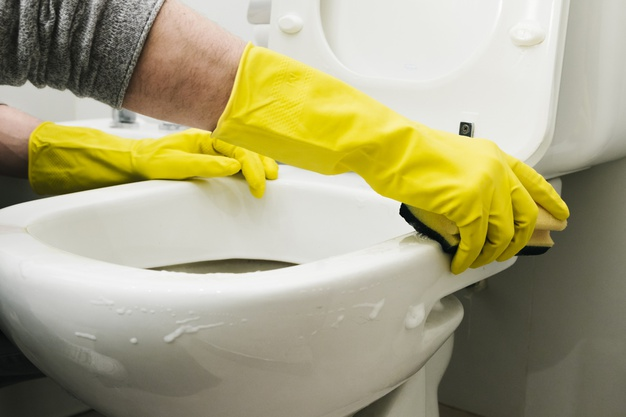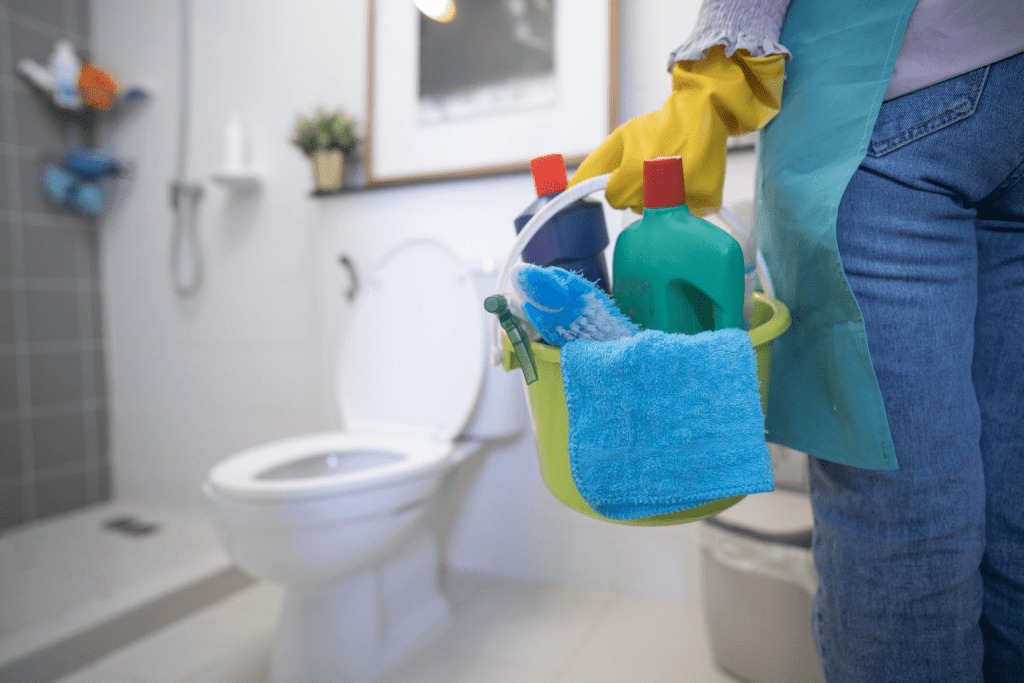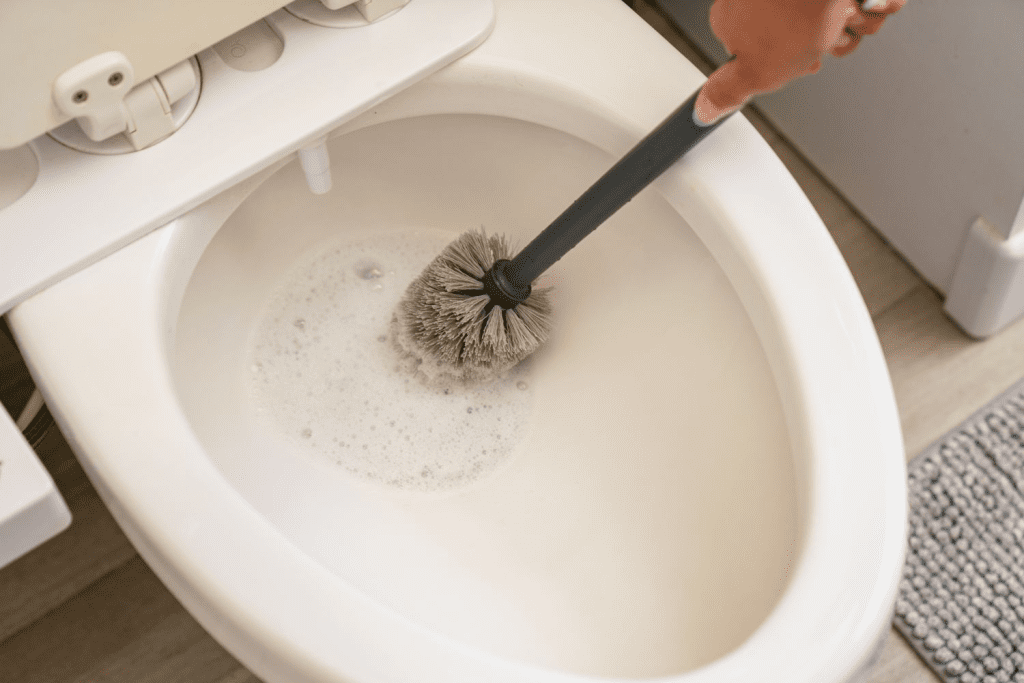In every household, cleaning routines can be a hot topic, especially when family members have differing opinions on what’s necessary. One such scenario is a mother-in-law insisting on daily bathtub cleaning while a busy parent feels once a week is sufficient, given the demands of caring for three kids. Let’s explore both perspectives, evaluate the necessity of frequent cleaning, and uncover ways to find a balance that respects everyone’s needs.

Why Cleanliness Standards Differ Among Family Members
Cleanliness often reflects personal habits, cultural norms, and health concerns. Some people equate a spotless home with care and discipline, while others view a lived-in home as practical and comfortable.
In this situation, the mother-in-law may prioritize daily cleaning to ensure hygiene and prevent issues like mold or soap scum buildup. On the other hand, the parent, juggling multiple responsibilities, might see daily cleaning as an unnecessary demand on their already strained time.
These contrasting perspectives are not uncommon in shared living arrangements and highlight the need for compromise and understanding.
The Realities of Parenting: Limited Time and Endless Tasks
For a parent managing the needs of three children, time is precious. Between school runs, meal preparation, and bedtime routines, adding daily tub cleaning to the mix can feel overwhelming.
When prioritizing tasks, parents often focus on what’s urgent and necessary—things like keeping the kitchen clean or managing laundry. While a clean bathtub is important, it might not rank as high as spending quality time with the kids or ensuring they’re fed and rested.
In this context, once-a-week cleaning may seem like a reasonable compromise to balance hygiene with other responsibilities.
The Hygiene Argument: Is Daily Cleaning Necessary?
Let’s take a closer look at whether a bathtub really needs to be cleaned every day.
- How Often Is the Tub Used?
A heavily used tub, especially with multiple bath times for kids, might warrant more frequent cleaning. However, if it’s primarily used for quick showers, daily scrubbing might be overkill. - Mold and Soap Scum Prevention
Regular maintenance can prevent grime and bacteria buildup, but this doesn’t always require deep cleaning. Rinsing the tub after each use and doing a thorough cleaning once or twice a week might suffice. - Health Concerns
If someone in the household has allergies or skin sensitivities, a cleaner tub could be beneficial. However, most households can maintain hygiene without daily scrubbing.

Finding Compromise in Shared Living Spaces
Living with extended family often requires compromise. Everyone brings their habits and expectations, which can sometimes clash. Here’s how to navigate such differences:
- Discuss Expectations: Have an open conversation about why daily cleaning is important to the mother-in-law and why it feels excessive to the parent.
- Agree on a Schedule: Perhaps a middle ground—cleaning the tub three times a week—could work for both parties.
- Divide Responsibilities: If the mother-in-law insists on daily cleaning, perhaps she could take on the task, freeing the parent to focus on other chores.
Smart Cleaning Solutions for Busy Parents
Maintaining cleanliness doesn’t have to mean spending hours scrubbing every day. Here are some time-saving tips:
- Use a Shower Spray
Keep a no-rinse shower spray handy to reduce soap scum and grime buildup after each use. - Install a Shower Filter
A filter can reduce hard water deposits, making the tub easier to clean. - Quick-Clean Techniques
A simple rinse and wipe after every bath or shower can go a long way in keeping the tub fresh. - Delegate Chores
If the kids are old enough, involve them in light cleaning tasks. This teaches responsibility while lightening the load.

The Emotional Toll of Cleaning Conflicts
Disagreements about household chores can create unnecessary tension, especially in multigenerational homes. While the issue might seem trivial, it often symbolizes deeper feelings—like respect for boundaries or differing values around cleanliness.
Addressing these feelings openly and respectfully is key to maintaining harmony. Listening to each other’s concerns can foster mutual understanding and reduce friction.
Strategies for Effective Communication
Good communication can resolve most household conflicts. Here’s how to navigate this conversation:
- Choose the Right Time: Talk when both parties are calm and not in the middle of a heated moment.
- Express Respect: Acknowledge the mother-in-law’s desire for cleanliness while explaining your own time constraints.
- Offer Solutions: Suggest alternatives like a revised cleaning schedule or quick-clean methods to meet halfway.
A Broader Perspective: Personal Preferences vs. Practicality

Ultimately, every household must strike a balance between personal preferences and practicality. For some, daily cleaning offers peace of mind. For others, it feels excessive when weighed against other responsibilities.
Recognizing these differences and working toward a compromise ensures that everyone feels heard and respected.
Conclusion: Meeting in the Middle
The debate over whether to clean the bathtub daily or weekly isn’t just about hygiene—it’s about balancing expectations, time, and effort. For parents, practicality often takes precedence, while others may prioritize strict cleanliness standards.
Finding a solution requires open communication, mutual respect, and perhaps a little creativity in chore management. By compromising on a cleaning schedule or exploring efficient cleaning methods, families can maintain both a clean home and a harmonious living environment.
At the end of the day, it’s about working together to create a space that feels comfortable and functional for everyone. And let’s face it—a sparkling tub is great, but a happy household matters even more.


